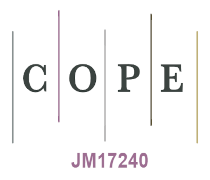J.S. Adams' inequity theory
DOI:
https://doi.org/10.18778/1427-969X.13.01Keywords:
inequity theory, distributive justice, sense of inequity, social exchangeAbstract
This paper explores J. S. Adams’ inequity theory. It discusses fundamental concepts, the definition of the sense of equity and inequity, possible consequences and methods of coping with them. It elaborates on the problems connected with measurement methods used to evaluate the sense of inequity as well as possible practical applications of the theory. The paper comprises also a review of the most important research in the field.
References
Adams J.S. (1961), Wages inequities in a clerical task. Unpublished study, General Electric, New York
Google Scholar
Adams J. S. (1963), Toward an understanding of inequity, „Journal of Abnormal and Social Psychology”, 67, 422–436
Google Scholar
DOI: https://doi.org/10.1037/h0040968
Adams J.S. (1965), Inequity in social exchange, [w:] L. Berkowitz (ed.), Advances in experimental social psychology, Vol. 2, Academic Press, New York, 267–299
Google Scholar
DOI: https://doi.org/10.1016/S0065-2601(08)60108-2
Adams J. S., Jacobsen P. R. (1964), Effects of wage inequities on work quality, „Journal of Abnormal and Social Psychology”, 69, 19–25
Google Scholar
DOI: https://doi.org/10.1037/h0040241
Anderson B., Shelly R. K. (1970), A replication of the Adams Experiment and a Theoretical Reformulation, „Acta Sociologica. Official Journal of the Scandinavian Sociological Association”, 13, 1–10
Google Scholar
DOI: https://doi.org/10.1177/000169937001300101
Foster J. J. (2003), Motywacja w miejscu pracy, [w:] Chmiel N. (red.), Psychologia pracy I organizacji, GWP, Gdańsk
Google Scholar
Furnham A. (1997), The Psychology of Behaviour at Work, Psychology Press, Hove Goodman P. S., Friedman A. (1983), Krytyczna analiza teorii niesłuszności Adamsa, [w:] W. E. Scott, L. L. Cummings (red.), PWN, Warszawa, 158–178
Google Scholar
Greenberg J. (1990), Employee Theft as a Reaction to Under-Payment Inequity: The Hidden Cost of Pay Cuts, „Journal of Applied Psychology”, 75, 561–568
Google Scholar
DOI: https://doi.org/10.1037/0021-9010.75.5.561
Grzelak J. Ł. (red.) (1989), Problemy współzależności społecznej, Wydawnictwo Uniwersytetu Warszawskiego, Warszawa
Google Scholar
Headey B. (1991), Distributive Justice and Occupational Incomes: Perception of Justice Determine Perceptions of Fact, „British Journal of Sociology”, 42, 581–596
Google Scholar
DOI: https://doi.org/10.2307/591448
Homans G. C. (1953), Status among clerical workers, Human Organization, 12, 5–10
Google Scholar
DOI: https://doi.org/10.17730/humo.12.1.304x56630j17j785
Homans G. C. (1961), Social behavior: its elementary forms, Harcourt, Brace, New York
Google Scholar
Jaques E. (1961), An objective approach to pay differentials, „Time Motion Study, 10, 25–28
Google Scholar
Karaś R. (2004), Teorie motywacji w zarządzaniu, Wydawnictwo Akademii Ekonomicznej w Poznaniu, Poznań
Google Scholar
Leventhal G., Reilly E., Lehrer P. (1964), Change in reward as a determinant of satisfaction and reward expectancy, Paper Read at Western Psychological Association, Portland (OR)
Google Scholar
Majer N. (1974), Psychologiczne aspekty sprawiedliwego wynagradzania, „Prakseologia”, 3–4, 317–356
Google Scholar
Makin P., Cooper C., Cox C. (2000), Organizacje a kontrakt psychologiczny. Zarządzanie ludźmi w pracy, Wydawnictwo Naukowe PWN, Warszawa
Google Scholar
Patchen M. (1959), Study of work and life satisfaction. Report No. II: absences and attitudes toward work experience, Institute for Social Research, Ann Arbor, Mich Patchen M. (1961), The choice of wage comparisons, Prentice-Hall, Englewood Cliffs (NJ)
Google Scholar
Perry L. S. (1993), Effects of Inequity on Job Satisfaction and Self-Evaluation in a National Sample of African-American Workers, „The Journal of Social Psychology”, 133 (4), 565–573
Google Scholar
DOI: https://doi.org/10.1080/00224545.1993.9712182
Schultz D. P., Schultz S. E. (2002), Psychologia a wyzwania dzisiejszej pracy, Wydawnictwo Naukowe PWN, Warszawa
Google Scholar
Downloads
Published
How to Cite
Issue
Section
License

This work is licensed under a Creative Commons Attribution-NonCommercial-NoDerivatives 4.0 International License.








